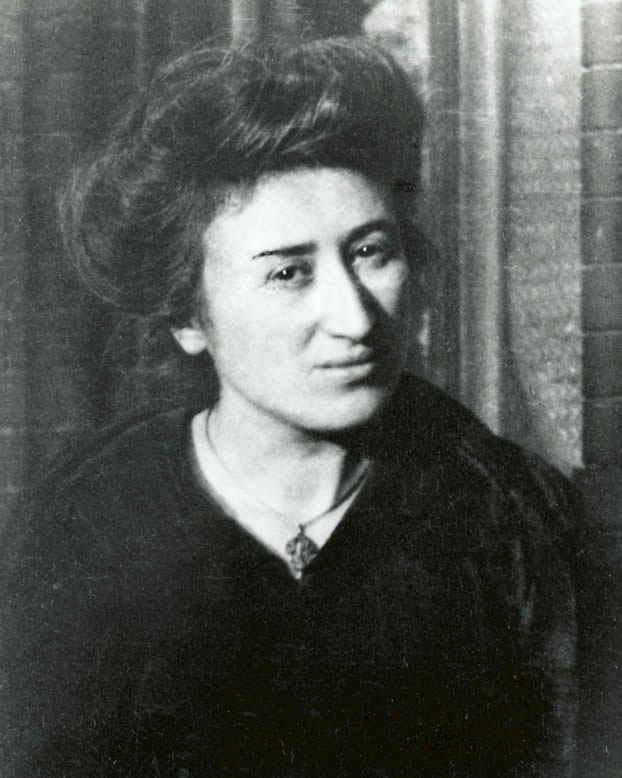 |
| Rosa Luxemburg |
Rosa Luxemburg, the Marxist revolutionary, activist, and author, was born to Jewish parents, Eduard and Line Luxemburg, in the Polish Russian town of Zamosac on March 5, 1871. Politics was her main interest from her early days at school.
She arrived in Zurich in 1889 to study law and political economy at the university there. Luxemburg found herself among some of the leading revolutionaries of the period, including George Plekhanov (1857–1918) and Leo Jogiches (1867–1919).
Her association with the latter became lifelong, and both men helped to establish a new party, the Social Democracy of the Kingdom of Poland, which became the Socialist Democratic Party of the Kingdom of Poland and Lithuania (SDKPiL).
  |
She was in Paris for a while, where she edited the party's mouthpiece, Sprawa Robotnicza (Workers' cause). She shifted to Berlin in 1898 and was associated with German socialism for the next 20 years. After getting her German citizenship, she settled in Berlin and became a member of the German Social Democratic Party. Luxemburg was the editor of the party organ Vorwarts (Forward) from 1905 onward.
Luxemburg developed many of her concepts of revolution during this period. For her, the Moscow uprising of December 1905 was due to mass action. Revolution was a long-term phenomenon. Moreover, it could happen in a comparatively underdeveloped country like Russia. She began to write profusely, emphasizing mass strikes.
The Bolsheviks and Mensheviks had different revolutionary strategies, and Luxemburg believed in the former's slogan of dictatorship of the proletariat and peasantry. However, she criticized the Bolsheviks after the October Revolution broke out.
Luxemburg was imprisoned in Polish Russia in 1906 and later released. She continued with her political activities and was jailed for two months in June and July 1907. Luxemburg taught Marxism and economics at the Social Democratic Party School in Berlin between 1907 and 1914.
World War I broke out on July 28, 1914, and the Bureau of the Socialist International met in Brussels the next day. Luxemburg, as a representative of the SDKPiL, advocated for mass demonstrations against the war. But SPD members voted in favor of the Reichstag's declaration of war on August 4.
In September Luxemburg, along with her colleague Karl Liebknecht (1871–1919) and others, formed the International Group from her flat and decided to oppose the war. The group was converted to the Spartakusbund on January 1, 1916. Luxemburg was imprisoned many times during the war.
She was released on November 8, 1919, from prison and went on to establish the German Communist Party (KPD) with the help of Liebknecht and socialist groups. Luxemburg organized the Spartakusbund uprising in January 1919 in Berlin but was captured along with Liebknecht. Both were killed on January 15.
Luxemburg's contributions to socialist theory and practice were immense. She was the most vocal spokesperson of the German labor movement. Luxemburg was not an armchair revolutionary like many of the Marxists but believed in action. She ultimately became a martyr for her beliefs, which never wavered from a strong basis of humanitarianism.